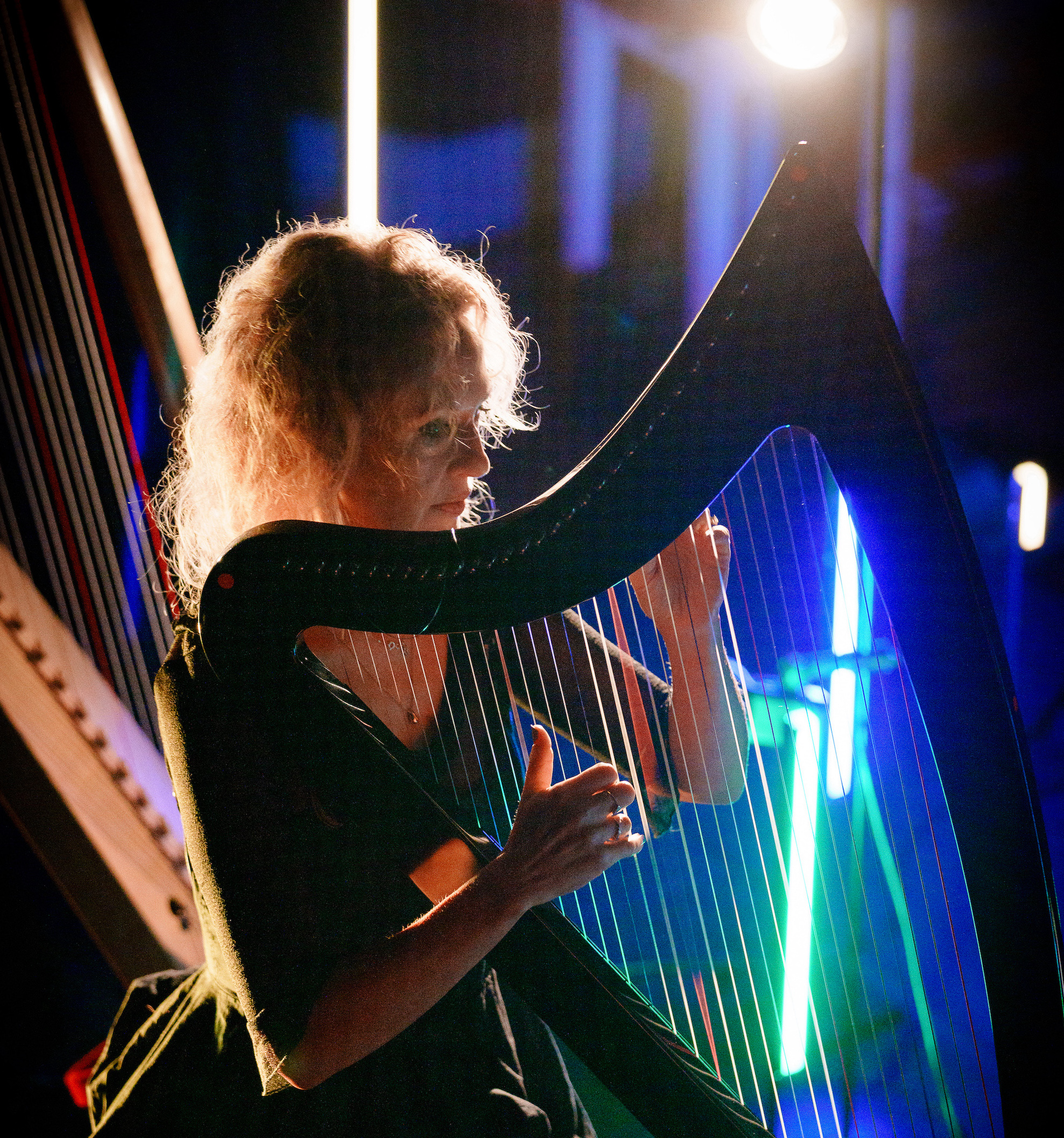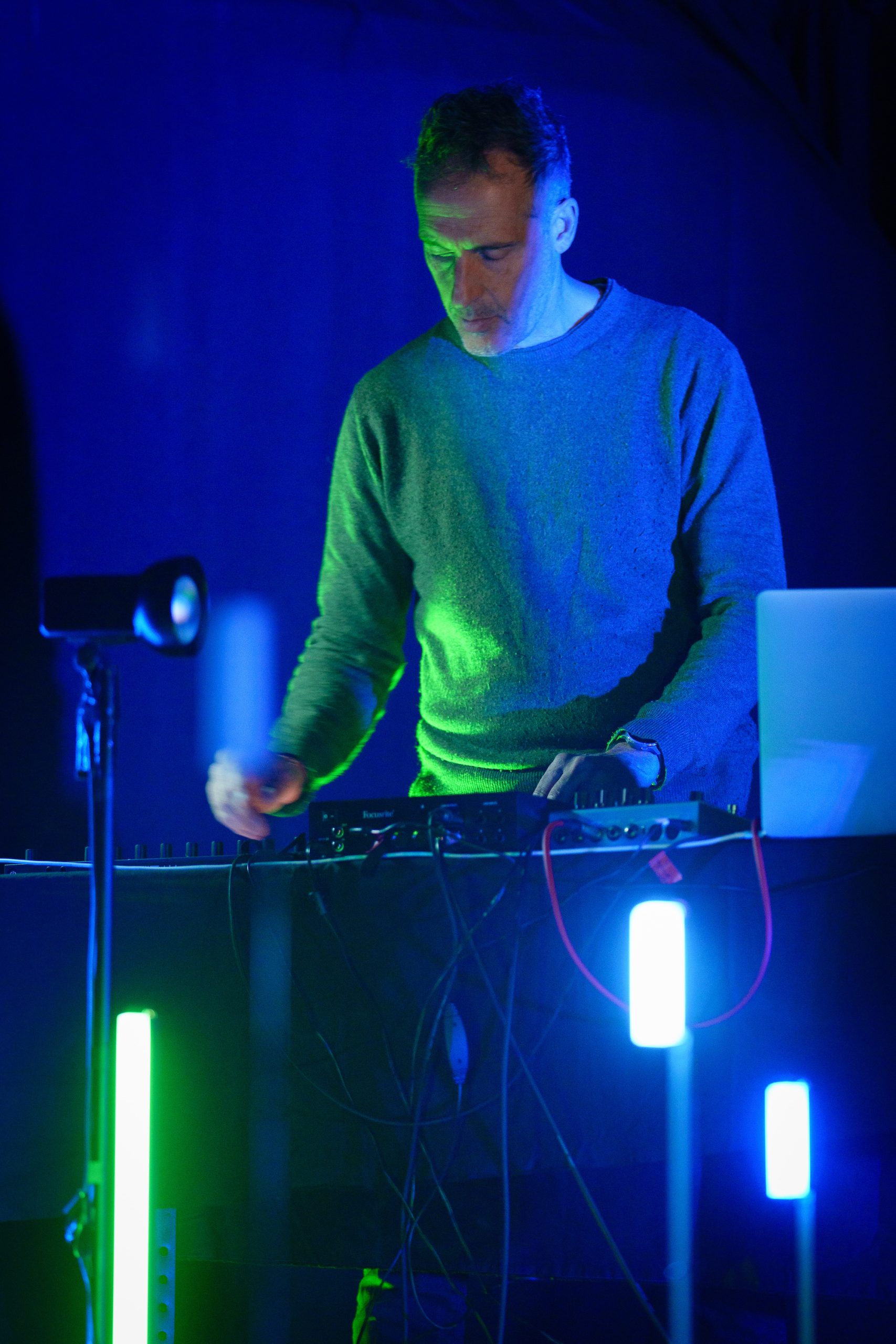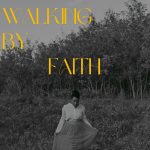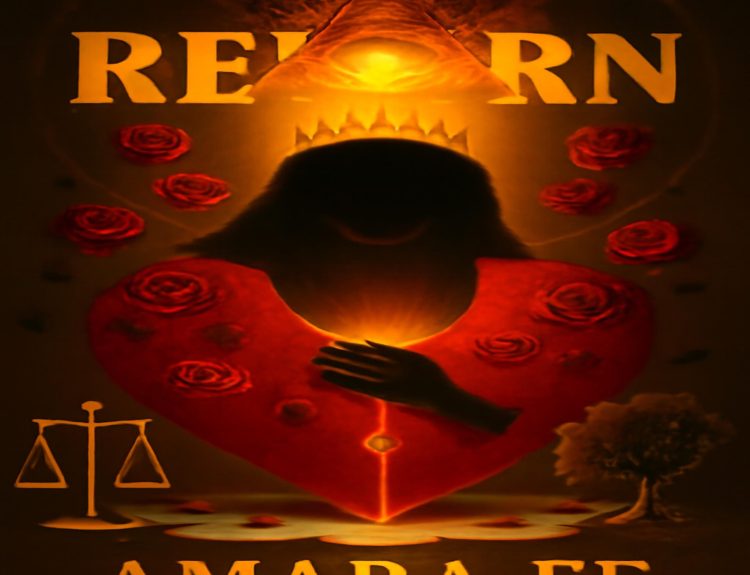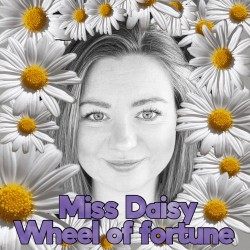“UIST,” Ruth Wall and Graham Fitkin’s latest album, beautifully blurs the boundary between ancient and modern music. Released on November 22, in a world where genres often feel confined to their borders, ‘UIST’ dares to transcend time and space, creating an immersive music journey that bridges the ancient Scottish landscape and the cutting-edge possibilities of electronic sound. Wall, a harper whose fingers dance across a breathtaking range of instruments—from the delicate Gaelic wire-strung harp to the commanding Electro harp—forms a lush foundation for Fitkin’s revolutionary electronic landscapes. Known for his Moog Voyager, Ableton setup, and an array of FX modules, Graham Fitkin weaves together fragments of Gaelic melodies with ambient loops and pulses, giving age-old sounds a new voice. Together, they craft a seamless fusion of acoustic purity and experimental innovation. They have created a soundtrack for the hearts and souls who left their homes in search of new lives—those who, like the Gaelic melodies they weave into their music, carry with them pieces of a lost world. Let’s dig into it.
“Uist” opens the album with a haunting reverence, the gentle plucking of Wall’s harp paired with subtle electronic swells that mimic the landscape of the island it’s named after. The track feels like stepping into a forgotten world where old songs still breathe life into the air. The slow, meditative build creates a sense of space as if you’re walking across misty hills, lost in time. It’s a track that takes its time, never rushing, and the patience it demands from the listener pays off in spades.
“I Ho Ro” introduces more rhythmic energy, with Wall’s harp playing brisker arpeggios over a pulsating electronic beat. The title evokes a sense of lively Scottish folk tradition, but Fitkin’s electronic loops transform the familiar into something otherworldly. The contrasting textures—between Wall’s sharp, almost metallic plucks and the smooth, flowing electronics—are fascinating. It feels like a dance between two worlds, one rooted in nature and the other in technology.
“Geal Og” has a more ethereal tone, with slow, deliberate harp notes enveloped by ambient synths that create a sense of weightlessness. Wall’s harp here becomes a beacon, its clarity cutting through the enveloping fog of sound. The sparse arrangements allow for the full emotional weight of the melodies to land, making it one of the more poignant moments on the album. There’s a sense of mourning here, aching for something lost, but there’s also beauty in that sorrow.
“Ale is Dear” brings a sense of playfulness, with a more lively tempo and brighter electronic textures. The harp’s resonant tones are matched by glitchy electronic loops, creating an intriguing contrast. The track feels like a journey through a festive gathering, with moments of joy and bursts of light, yet the electronics underneath hint at a deeper, almost melancholic undercurrent.
“Red Red Rose” invokes the traditional Scottish ballad in its title, but here it’s reimagined into something less immediately recognizable. The harp is the emotional center, but it’s accompanied by glitchy percussion and atmospheric synths that provide an ethereal backdrop. The melding of natural and electronic sounds in this track suggests a narrative of lost love, and the dissonant harmonies toward the end give it a bittersweet, longing feeling.
“Beinn Dorain” is one of the album’s most vivid tracks, with a rhythmic pulse that drives the piece forward like a distant drumbeat. Wall’s harp takes on a more percussive role, its rhythms bouncing off Fitkin’s precise, looping electronic patterns. The track feels like the sound of a journey, the traveler moving through changing landscapes, unsure of what lies ahead but resolute in their path.
“Gaol Nam Ban” takes a deeper, more introspective turn, with a heavy sense of isolation. The harp notes feel solitary, suspended in midair, while the electronics provide a shimmering, almost hypnotic texture. It’s a piece that feels like a reflective moment during migration, a time when the noise of the world dies down and all that remains is the inner journey.
“Seventeen Come Sunday” has a playful, almost wistful feel, evoking a sense of youthful optimism. The track is bright and airy, with delicate harp melodies interwoven with smooth electronic rhythms. It’s a fleeting moment of lightness in an album that largely explores heavier themes, but it also carries an undercurrent of yearning for something left behind. The contrast between the old folk melodies and modern electronic soundscapes is compelling.
“Harris Gregor” is a standout track that builds slowly but surges with intensity. The repetitive, looping nature of the electronics gives the track an almost hypnotic feel, while Wall’s harp shimmers above, like the wind whipping through the Scottish Highlands. This track feels like a breathless chase, a desperate attempt to grasp onto something that’s slipping away.
“Atholl” closes the album with a sense of finality. The music here feels expansive, as if reaching for the horizon. The layered harps and ambient soundscapes create a feeling of transcendence, like leaving the earth behind and floating into a new dimension. It’s a fitting conclusion to an album that explores the journey of migration, loss, and hope.
The production of ‘UIST’ is masterful. Every track is well produced, with each instrument placed in perfect relation to the others. Fitkin’s electronics never overpower Wall’s harps but instead complement and elevate them, creating rich layers of sound that breathe life into the ancient instruments. The looping, granular nature of the electronic textures adds a contemporary edge, but it’s the sparseness, the space between the sounds, that gives the music its haunting quality.
Wall’s performance is terrific. She brings a delicate but forceful energy to each track, whether she’s plucking the strings of her concert harp with the precision of a surgeon or strumming the electro-harp with an ethereal, almost otherworldly lightness. Her ability to weave these instruments into a cohesive whole with Fitkin’s electronics is a testament to her immense skill.
In essence, ‘UIST’ is an album that demands to be felt as much as it is heard. It’s a sonic exploration of history, migration, and memory, wrapped in the intricate melodies of ancient harps and the pulsating beats of modern electronics. Ruth Wall and Graham Fitkin have created something truly extraordinary, a work of art that feels timeless and entirely new. It’s a journey you won’t soon forget—a journey that stays, like the ancient tunes that inspired it, long after you’ve left it behind. As a listener, I was transported. I felt the weight of history, the ache of migration, and the beauty in the blending of past and future. ‘UIST’ is not just music; it’s an experience.
Listen to the “UIST” album on Spotify
Follow FitkinWall here for more information


